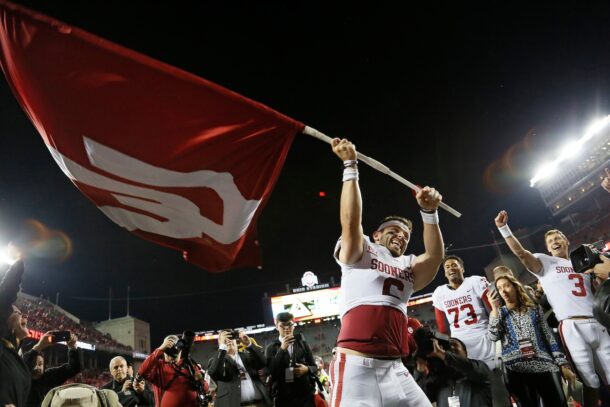
Hayes: FSU wants out of the ACC. The question is: Who wants FSU?
By Matt Hayes
Published:
These declarations and proclamations all sound good, even though they’re cloaked in the unknown.
Yet here’s the problem with the Florida State board of trustees trying to publicly figure a legal way out of the ACC: Where are the Noles going?
“That will not be the document that keeps us from taking action,” FSU board of trustees chairman Peter Collins told warchant.com earlier this week.
The “document” is the Grant of Rights signed by FSU and every other ACC school that guarantees all media rights revenue belongs to the ACC until 2036.
That’s Problem No. 1 for FSU. Problem No. 2 is just as difficult: What conference is adding FSU?
The SEC and Big Ten aren’t inviting any school from any conference unless they’re free and clear from their previous conference. And FSU isn’t exactly a fit for either conference.
If the SEC expands, it will only be for value. Multiple SEC sources told Saturday Down South that there are 2 schools remaining that add value: Notre Dame and North Carolina.
If the Big Ten expands into the state of Florida, multiple industry sources told Saturday Down South the target is Miami. The Canes would deliver a large television market and are a member of the American Association of Universities — of which all but 1 (Nebraska) of the 16-team Big Ten is a member.
So then what for FSU?
There’s a possibility that FSU figures a way to break the Grant of Rights (it hasn’t been done yet) and pulls the 6 other schools who were reportedly interested earlier this spring in leaving the ACC — Miami, Clemson, North Carolina, NC State, Virginia, Virginia Tech — into a new conference. A national conference that could include SMU (Dallas television market), Washington, Oregon and Utah.
But there are problems with that move, too. Washington and Oregon want a Big Ten invite and will wait.
But it doesn’t end there. ESPN paid millions up front to build the ACC Network as part of the media rights deal through 2036, and now those 7 schools are breaking their agreement.
Why would ESPN then reach another media rights deal with that new conference, whose members broke up the ACC and cost ESPN tens of millions? Would that new conference then be in the same situation as the embattled Pac-12 — scrambling for a streaming, non-linear TV deal that may or may not pay what the remaining schools need?
Another problem to consider: Once the Grant of Rights is broken, that doesn’t automatically mean North Carolina and Virginia will move to any newly assembled conference. Both are coveted by the SEC and Big Ten because both would be new territory and add value.
Any potential move, though, means FSU must figure a way to break free from the Grant of Rights deal with the ACC. Without a clean break, FSU — under the terms of the Grant of Rights deal — would owe all media rights revenue earned to the ACC until 2036.
Not what FSU would’ve earned at the ACC until 2036, but everything it earns at a new conference until 2036.
“That’s the least of my worries based on what we know,” Collins told Warchant. “We understand (the Grant of Rights). We have gotten a lot of counsel on that document.”
Maybe FSU figures a way out. Maybe school officials have a private equity firm lined up to build a new conference, and pay the schools what they need to be whole after any new potential media rights agreement.
Maybe the Saudis are lined up to invest. If you’re going to sportswash, why not do it with the 2nd most popular sport in America?
This seems more like desperation than affirmation. And frankly, what else can FSU do?
They can’t sit still in the middle of the SEC footprint — in the same state as Florida — while everyone in that league will soon earn $90 million annually from their media rights deal.
They can’t sit still in the ACC, where they’ll earn less than half of that.
They also can’t pick and choose where they’ll land.
And that’s the biggest problem of all.
Matt Hayes is a national college football writer for Saturday Down South. You can hear him daily from 12-3 p.m. on 1010XL in Jacksonville. Follow on Twitter @MattHayesCFB







